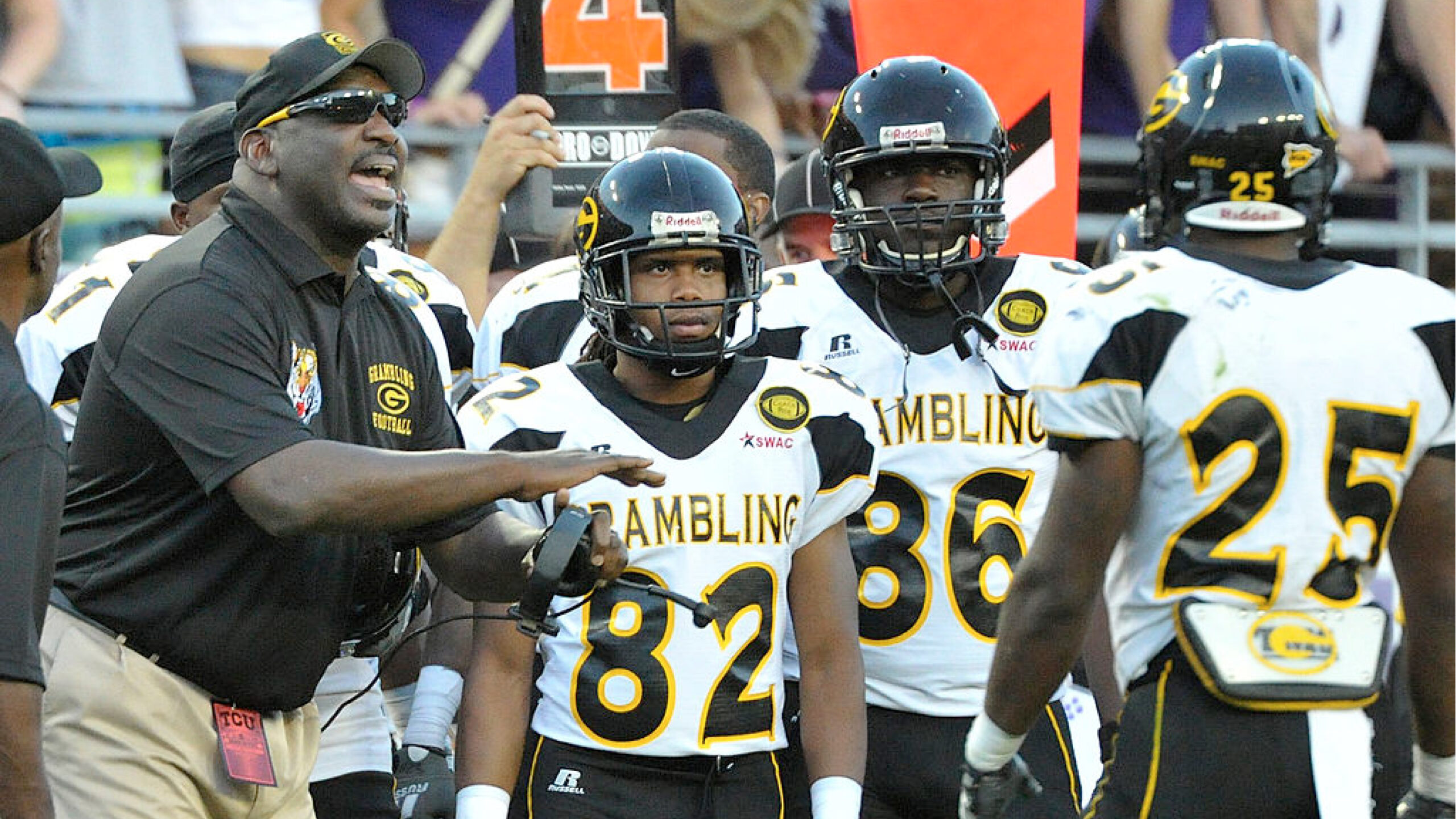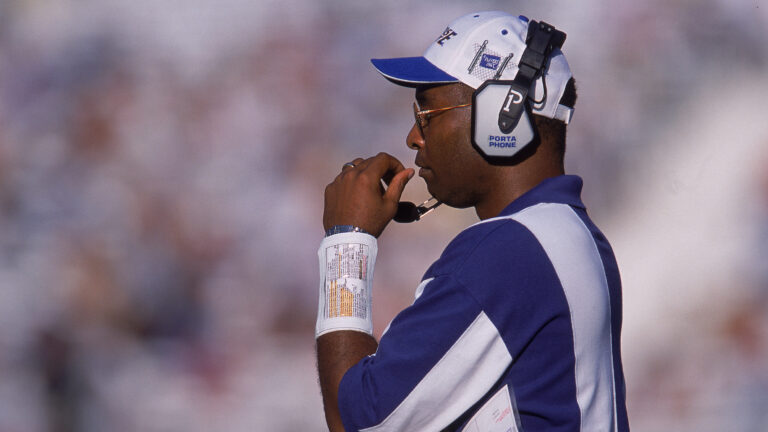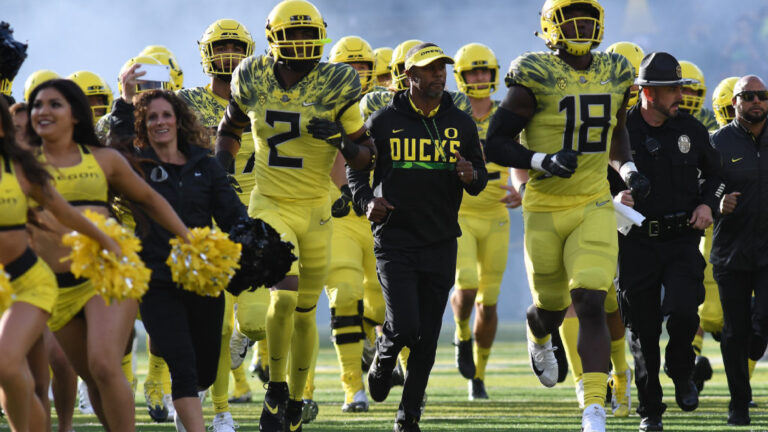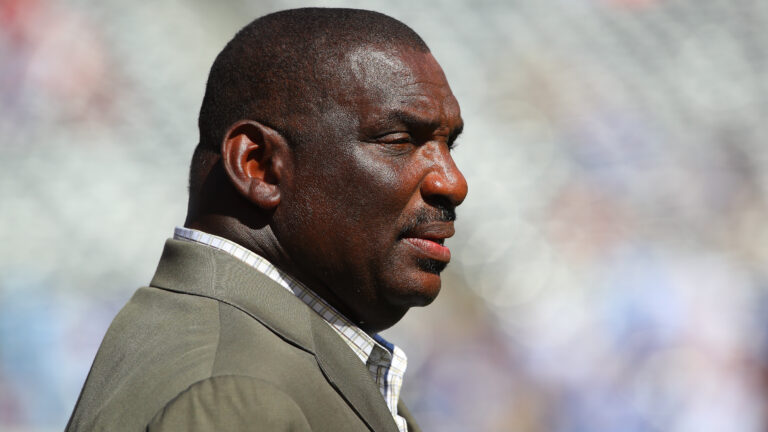Reporter Patrick Hruby Discusses "Too Few Black College Coaches, Too Few Opportunities"
Why this matters
In the Global Sport Institute's recent study about coaches of color in the Power-5, it became clear there are stark contrasts in hiring practices, tenures, and promotions between coaches of color and their white peers. Patrick Hruby discusses the implications of this data and the intersection of sport and society.
Patrick Hruby has covered everything from politics to pop culture to the economy and back again. But he’s always had an affinity for sports and how it forms perfect intersections with societal issues.
“Sports are a mirror of society,” he says. “There’s so many things that if you can understand it in sports or through sports, naturally you can get an understanding of how it works everywhere else.”
Recently, researchers at the Global Sport Institute (GSI) investigated collegiate head football coach hiring in their NCAA Power 5 field study. In his Global Sport Matters article, "Too Few Black College Coaches, Too Few Opportunities," Hruby brings this data to life by talking with coaches and players across the country. What he found was upsetting, but not surprising.
One of his interviewees, Dr. Fitz Hill, was the first Black head football coach at San Jose University. He went on to become a university president and publish a book, Crackback!, which describes the barriers posed to Black coaches trying to level up in collegiate and professional coaching settings. Throughout his career, Hill sent surveys across the country to other coaches to gather data and information about others’ experiences.
Hruby says, “He’s not just someone who lived this in his own coaching career. As he was coaching in his days as a graduate assistant coach onward, he was studying this in an academic way.”
Like the GSI study itself, Hruby found that stories of Black coaches being rejected was normal. It was also typical to hear that even if there were multiple positions open, only one Black coach would be hired. Throughout college football programs in America, coaches of color are more likely to have a shorter tenure than their white counterparts. They are also less likely than white coaches to have a direct transition into a NFL position which could lead to a head coaching job.
The denial of opportunities to coaches of color is also a denial of talent and valuable experience. “That’s a loss for the coaching profession,” says Hruby, who acknowledges that unfortunately there are thousands of football fans who care more about football than they do racial equity. If they are going to advocate for anything, he urges them to consider, “You should care about racial equity because it means you’re losing out on potential talent to make the thing you love better.”
There have been attempts from coast to coast to ensure racial equity in the hiring of coaches. In 2009, Oregon passed a law that “requires public colleges and universities to interview at least one qualified minority candidate for all head coach and athletic director openings.” Over a decade later, Oregon is still the only state to have a law like this one.
“This law has been effective,” states Hruby. “But it is not perfect. Much like the Rooney Rule in the NFL, it is far from perfect and we have not achieved proportionally or equal representation in these positions of power.”
Recently, the West Coast Conference has enacted the Russell Rule which requires each member school to have a “member of a traditionally underrepresented community” as a finalist for assistant coach, head coach, athletic director, and senior administrator positions. Hruby mentions that Fitz Hill and Marvin Lewis, another interviewee, have been involved in Zoom calls with hundreds of coaches of color throughout the United States. They’ve been discussing their own experiences with hiring discrimination, their advice to younger coaches, and their strategies to work towards an equitable hiring process.
“White coaches aren’t having to get together in 600-guy Zoom calls to figure this stuff out because you don’t need to do that when you’re a white coach. The system works fine for you,” says Hruby.
In order to create an equitable playing field for coaches of color at every level, there needs to be a collective understanding of why the same barriers in play exist everywhere. He mentions that this is especially necessary for white people who continue to either dismiss the issue or twist it in an attempt to explain their own struggles. They need to recognize that racial equity benefits everyone, but in order for it to become a reality, there needs to be a re-evaluation of hiring and workplace practices with accompanying action.
“You have to understand not just how it works in college football, but how it works in employment across America,” he says. “This isn’t about whether people in the system are good, bad, racist, not racist, it’s about the system and the history and the structure and how that’s not making it a level and equitable playing field. That’s where your solutions are going to come through.”
Listen and subscribe to the Global Sport Matters podcast:
Monthly Issue
The Reset of College Sport
Sport at the college level in America is facing issues reflective of the world at large. From the calls for racial equality, labor disputes and discussions, to health and safety concerns with playing in a pandemic - what will this reset moment look like?






